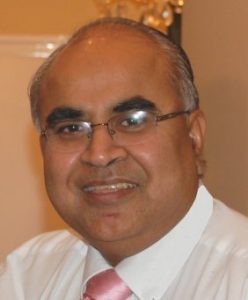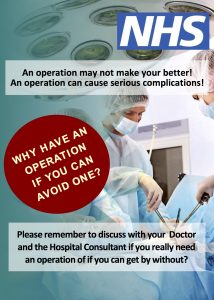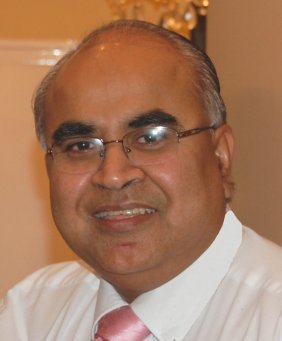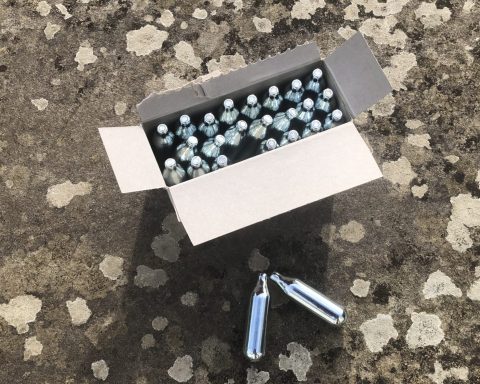 George Ampat is a consultant orthopaedic surgeon hoping to help patients find non-surgical solutions.
George Ampat is a consultant orthopaedic surgeon hoping to help patients find non-surgical solutions.
Why have an operation if you can avoid one? It’s a simple question with an obvious answer but increasingly surgery is being used where it may not be necessary. There is a general consensus amongst the general public that surgery is a “fix all” solution; but, by and large, this is not the case. Unfortunately the onus of explaining the risks of surgical interventions and the potential lack of benefit following surgical intervention solely rests on the surgeon.
The Medical Director of NHS England, Sir Bruce Keogh, warned that as many as one in seven surgical procedures performed are unnecessary. Sir Bruce estimates that around 10 to 15% of NHS expenditure is on overuse of treatment, with a cost totaling upwards of £1.8 billion a year.1 With the NHS under increasing financial constraints, we cannot afford to continue overburdening it with unnecessary operative procedures.
The NHS has seen a number of successful campaigns with information dissipation, for example, promoting the need to stop prescribing of antibiotics for a cold.2 Why is there not a similar campaign to warn patients about the complications and adverse outcomes of surgical interventions? The onus of explaining potential complications of surgery and the potential lack of benefit is left entirely in the hands of the surgeon. This is not fair. A recent book by Professor Ian Harris, a Sydney orthopaedic surgeon and lecturer at the University of New South Wales, suggests that surgery is offered because it is generally accepted by the public as the best solution and therefore avoids patient complaints. Professor Harris goes as far as to suggest that surgery often serves as a “placebo effect”.3 It is possible, that to avoid similar complaints, surgeons in the UK, are forced by the public, to provide the option of surgical intervention, when it may not be necessary.
 Success of the campaign against prescribing antibiotics for common colds was only possible by educating both the public and the health professional.2 By following the same model posters promoting the need to avoid unnecessary surgery should be displayed in GP surgeries and hospital clinic waiting areas. This should mirror with an educational campaign among general practitioners to decrease referrals for surgical intervention. This joint campaign would relieve the NHS of a huge financial burden whilst ensuring patients do not have to undergo unnecessary surgical intervention.
Success of the campaign against prescribing antibiotics for common colds was only possible by educating both the public and the health professional.2 By following the same model posters promoting the need to avoid unnecessary surgery should be displayed in GP surgeries and hospital clinic waiting areas. This should mirror with an educational campaign among general practitioners to decrease referrals for surgical intervention. This joint campaign would relieve the NHS of a huge financial burden whilst ensuring patients do not have to undergo unnecessary surgical intervention.
Posters such as these (http://bit.ly/1U6hxnO) should be displayed publicly. This campaign is also likely to decrease the stress on a consultation where the surgeon is attempting to talk the patient out of surgery and the patient is wrongly assuming that this is a lesser choice in order to save costs etc.
References
1. One in seven treatments not necessary. http://www.telegraph.co.uk/news/health/news/11733871/One-in-seven-treatments-not-necessary-warns-NHS-chief.html
2. McNulty CA1, Cookson BD, Lewis MA. Education of healthcare professionals and the public. J Antimicrob Chemother. 2012 Jul;67 Suppl 1:i11-8
3. The easiest way to satisfy people is to operate. Leading surgeon reveals doctors perform unnecessary surgery to stop patients complaining. http://www.dailymail.co.uk/news/article-3478578/The-easiest-way-satisfy-people-operate-leading-surgeon-reveals-doctors-perform-UNNECESSARY-surgery-stop-patients-complaining.html




This is an interesting idea from Mr Ampat. I realise there is potential for this to raise the hackles of some GPs – we do spend an enormous amount of time and effort not referring people to surgeons because we know surgery isn’t the right option. Suggesting surgeons are the only ones to do this is somewhat disingenuous. Yet I certainly don’t expect surgeons to offer surgery to everyone we refer – clearly some people are going to need careful assessment of the risks and benefits and that has got to be the surgeon’s role in finely balanced cases.
Once we get past that I do agree about this as a problem – there is a section of the population who readily believe that surgery will offer a near miraculous solution and it’s refreshing for a surgeon to be pointing that out so publicly.